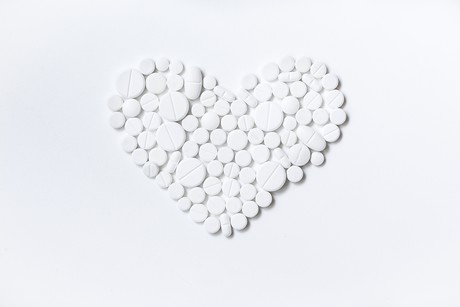Remain on aspirin to avoid repeat heart attack, stroke
Monday, 02 October, 2017

Heart attack and stroke victims who stop long-term, low-dose aspirin therapy are at increased risk of suffering a cardiovascular event.
Aspirin, taken in low doses, is used to help reduce the risk for recurrent heart attack or stroke. Aspirin inhibits clotting, lowering the risk of cardiovascular events. Nearly 10% to 20% of heart attack survivors stop daily aspirin use within the first three years following their event. In broader patient settings, discontinuation rates of up to 30% and poor aspirin compliance in up to 50% of patients have been reported, according to new research published in the American Heart Association’s journal .
To study the health effects of stopping aspirin therapy, Swedish researchers examined the records of 601,527 people who took low-dose aspirin for heart attack and stroke prevention between 2005 and 2009. Participants were older than 40, cancer-free and had an adherence rate of greater than 80% in the first year of treatment.
In three years of follow-up, there were 62,690 cardiovascular events. Researchers also found:
- one out of every 74 patients who stopped taking aspirin had an additional cardiovascular event per year;
- a 37% higher rate of cardiovascular events for those who stopped aspirin therapy compared to those who continued; and
- an elevated risk of cardiovascular events that increased shortly after discontinuation of therapy and did not appear to diminish over time.
“Low-dose aspirin therapy is a simple and inexpensive treatment,” said Dr Johan Sundstrom, PhD, lead author and professor of epidemiology at in Sweden. “As long as there’s no bleeding or any major surgery scheduled, our research shows the significant public health benefits that can be gained when patients stay on aspirin therapy.”
Studies have suggested patients experience a ‘rebound effect’ after stopping aspirin treatment, possibly due to increased clotting levels from the loss of aspirin’s blood-thinning effects. Because of the large number of patients on aspirin and the high number who stop treatment, the importance of a rebound effect may be significant, Sundstrom said.
“We hope our research may help physicians, healthcare providers and patients make informed decisions on whether or not to stop aspirin use,” Dr Sundstrom said.
Originally published
$12m for homegrown heart disease and diabetes innovations
$12 million in federal funding has been announced for the development of new Australian-made...
National cancer screening program marks first in almost 20 years
From 1 July, the National Lung Cancer Screening Program will commence — marking the first...
Doctor deregistered after botched facelift calls for ambulance
A Queensland doctor has been deregistered after a botched cosmetic surgery procedure left a...





